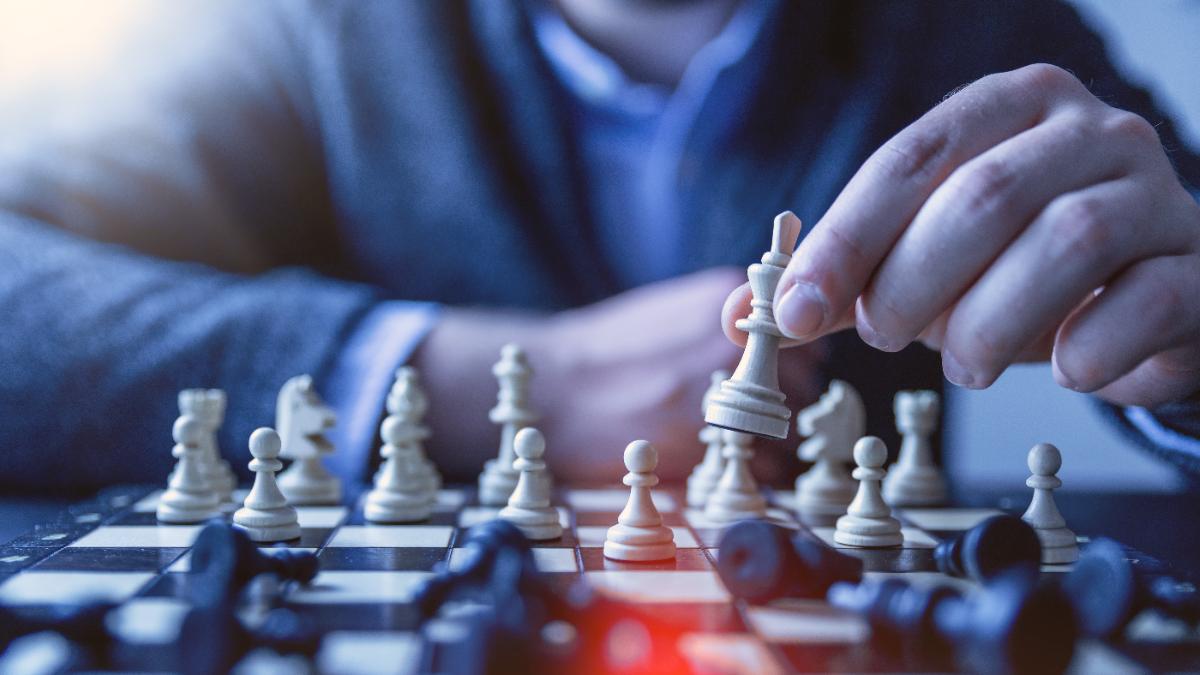Chess for kids and adults

Chess is a classic board game that has been enjoyed by people of all ages for centuries. While it is often associated with mental exercise and strategy, chess can also have numerous benefits for kids’ physical and mental health.
One of the primary benefits of chess for kids is that it helps to improve their cognitive skills. Playing chess requires concentration, problem-solving, and critical thinking, all of which are essential skills for success in school and in life. By playing chess, kids can improve their memory, attention to detail, and ability to plan and strategize.
In addition to cognitive benefits, chess can also have physical benefits for kids. While it may not be as physically demanding as sports like soccer or basketball, chess still requires a certain level of hand-eye coordination and fine motor skills. By moving the pieces and making strategic decisions, kids can improve their hand-eye coordination and fine motor skills.
Chess can also have emotional and social benefits for kids. Playing chess requires patience, self-control, and the ability to handle frustration and defeat. These skills can help kids to cope with the challenges of growing up and can improve their emotional intelligence. In addition, playing chess with friends or in a club can help kids to develop social skills and make new friends.
Another great aspect of chess is that it is a game that kids can play at any age and at any skill level. It can be enjoyed by beginners and experienced players alike, and there are numerous resources available to help kids learn the game and improve their skills.
Researches proving the benefits of chess for cognitive ability and memory :
There have been numerous studies conducted on the benefits of chess on memory, and the results have consistently shown that chess can have a positive impact on memory and other cognitive skills.
One study, published in the journal Neurology, found that chess players had significantly higher scores on memory and cognitive tests compared to non-chess players. The study involved over 1,000 participants and controlled for factors such as age, education, and overall cognitive ability.

Another study, published in the journal Frontiers in Human Neuroscience, found that chess training can improve memory performance in both children and adults. The study involved a group of chess players and a control group, and the results showed that the chess players had significantly better memory performance on a variety of memory tests.
Other studies have also found that chess can have a positive impact on memory and cognitive skills in people with dementia and other age-related cognitive decline. One study, published in the journal Aging, Clinical and Experimental Research, found that chess training improved memory and cognitive function in a group of elderly individuals with mild cognitive impairment.
The research consistently shows that chess can have a positive impact on memory and other cognitive skills. It is a great activity for people of all ages to engage in to improve their overall cognitive health. So, chess is not only a game of strategy and skill, but it can also be a valuable tool for improving memory and cognitive function.
Overall, chess is a fantastic game for kids and adults. It offers numerous physical, cognitive, emotional, and social benefits. It is a great way for kids to exercise their brains and improve their overall health and well-being and it has a positive impact on memory for adults as well!
How to start learning chess ?
If you’re interested in learning chess, you’re in for a treat!, here are some tips to get you started:
1- Familiarize yourself with the chessboard and pieces: The first step to learning chess is understanding the layout of the board and the different types of pieces. The chessboard consists of 64 squares arranged in 8x8 grid, and each player has 16 pieces: one king, one queen, two rooks, two knights, two bishops, and eight pawns. Each piece has its own unique movement patterns, so it’s important to understand how each piece can move.
2- Learn the rules of the game: Once you understand the layout of the board and the different types of pieces, it’s time to learn the rules of the game. The objective of chess is to capture your opponent’s king, while protecting your own. Each piece has its own movement patterns, and the game is won by trapping the opponent’s king in a position where it cannot escape capture.
3- Practice basic strategies: As you start to learn chess, it’s important to practice basic strategies that will help you to control the center of the board and put pressure on your opponent’s pieces. Some common strategies include developing your pieces (moving them out from their starting positions), controlling the center of the board, and protecting your king.
4- Play against others: The best way to improve at chess is to practice against other players. You can find opponents at local chess clubs or online through websites like chess.com. Playing against others will help you to learn new strategies and techniques and improve your skills.
5- Learn from chess masters: There are numerous resources available to help you learn chess and improve your skills. You can find chess books, instructional videos, and online courses that can help you to learn from experienced chess players.
Overall, learning chess is a rewarding and enjoyable experience. It is a game that can be enjoyed by people of all ages and skill levels, and it offers numerous cognitive and strategic benefits. So, don’t be afraid to start learning chess – it’s a game that you can enjoy for a lifetime!